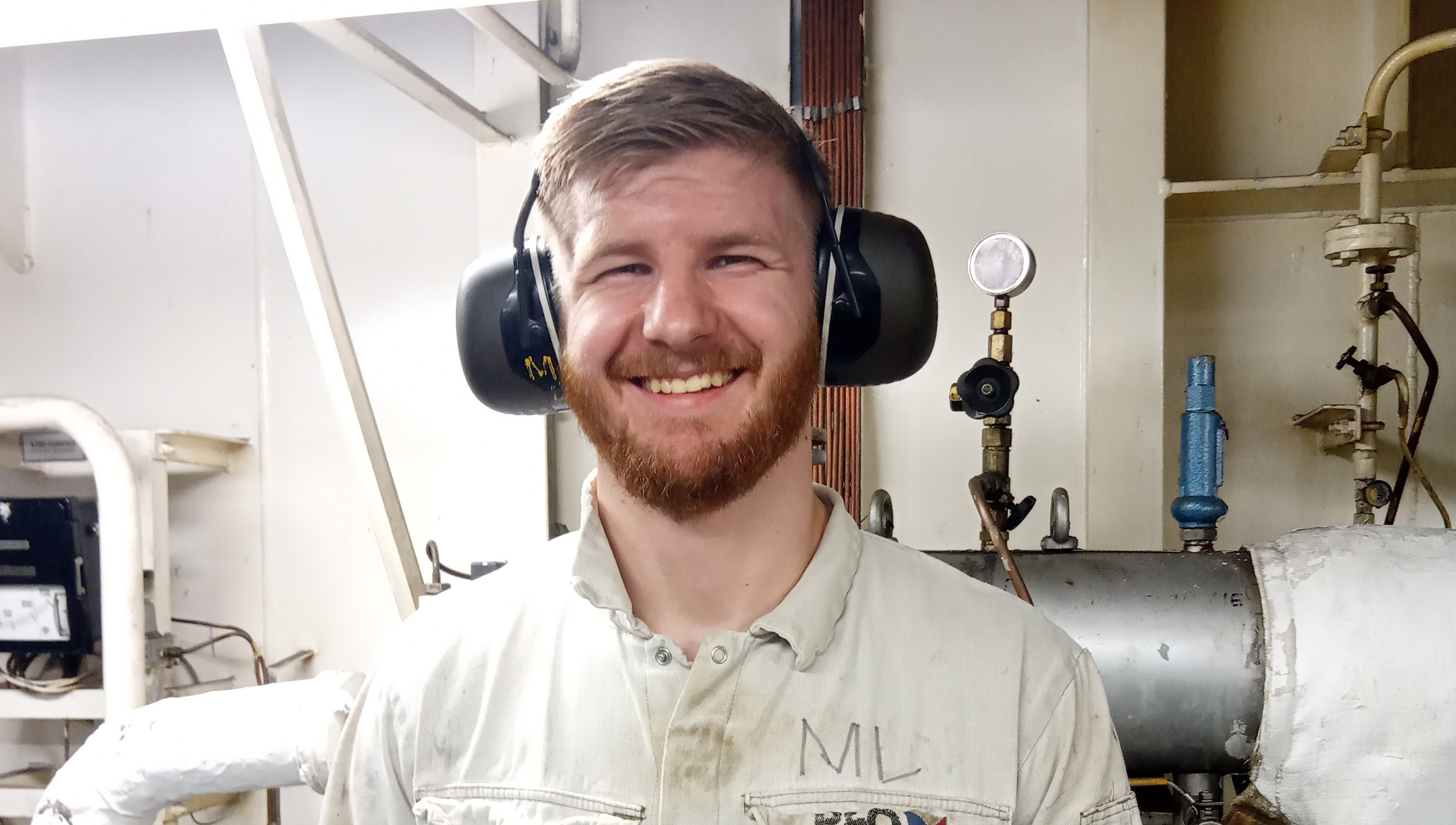- Topics
- Campaigning
- Careers
- Colleges
- Community
- Education and training
- Environment
- Equality
- Federation
- General secretary message
- Government
- Health and safety
- History
- Industrial
- International
- Law
- Members at work
- Nautilus news
- Nautilus partnerships
- Netherlands
- Open days
- Opinion
- Organising
- Podcasts from Nautilus
- Sponsored content
- Switzerland
- Technology
- Ukraine
- United Kingdom
- Welfare

Seafarers have to undergo a fair bit of fire safety training in the course of their work, but what's it like to put that training into practice during a real emergency? Sarah Robinson asked a young Nautilus member who helped to put out an engineroom fire last year
It was the afternoon of 31 March 2019. The P&O passenger ferry European Causeway was at berth in the Northern Ireland port of Larne with 144 passengers and 57 crew onboard, preparing to leave for its usual crossing to Cairnryan in Scotland.
Suddenly, fourth engineer Michael Love noticed a problem. 'There was a high exhaust temperature on the forward generator,' he recalls, 'so I decided to change over to the aft generator and went out to investigate. '
Mr Love stopped another piece of machinery as a precaution, and then, on his way up the stairs, the lights went out and he could see smoke coming through the watertight door from the aft engineroom.
'As I got closer I saw a bright orange light that lasted a couple seconds then went out,' he continues. 'I tried to look into the space, but it was too dark and smoke-logged to see anything, so I set off the Hi-Fog [fire suppression system] over the aft generator and closed the watertight door. I then went into the control room and raised the alarm.'
At this point the alarm bells were rung and an announcement was made to evacuate the passengers onto the quayside. Mr Love and the other engineers on watch shut the quick closing valves and dampers, stopped the fans and tried to assess the situation via CCTV – although it was hard to make anything out.
Shortly afterwards, third engineer Reece Mackenzie arrived, and he and Mr Love put on their compressed air breathing apparatus (BA) and fire suits.
'The engineroom team set up the hoses and we made an entry into the space,' says Mr Love. 'Fortunately, there wasn't very much to see as the Hi-Fog had taken care of any smoke or hot materials. After this the engine was fully isolated.'
Once the incident was over, Mr Love had to file a report to his chief engineer, and the ship was laid up for a few days while an investigation was carried out.
'We also had a temporary generator installed on deck until the aft generator was put back into service,' he remembers.
Mr Love tells the story in a very matter-of-fact way, but this could have escalated into a major incident, and the professionalism of the two engineer officers was vital in ensuring a positive outcome. As their master Captain Paul Roche notes, an engineroom fire is the most serious of all fires onboard ship.
'It takes courage to stand and close a watertight door, which can take up to 10 seconds, while the space is on fire,' points out Capt Roche. 'It takes courage to enter an engine space on fire surrounded by flammable materials and fuel with the express intent of putting it out when they could have walked off the ship ashore.'
It helped that fire safety training was taken seriously on the European Causeway. 'I had completed the basic and advanced firefighting college courses,' says Mr Love, 'and then trained in BA/ firefighting numerous times during weekly drill while serving onboard.'
These regular onboard drills were vital to Mr Love's confidence when he was put to the test. 'The best thing for me I found in this situation (although the adrenaline helped too!) was familiarity with the fire suit and being able to don it quickly and properly. The one drill that sticks out in my mind is where we were timed on how long it took to get into the fire suit and BA.'
Many seafarers can go their whole careers without having a similar experience to Mr Love's, but a fire onboard could happen to any ship tomorrow. So what's the advice from someone who's been there? 'Know your equipment and act decisively.'
Tags
